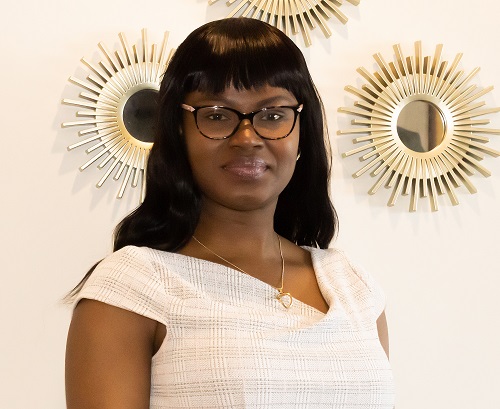Badie and Wafaa Al Souad were forced to move to Lebanon in 2014 with their four children due to the war that started in their home country, Syria in 2011. After staying in Lebanon for three years, they received an invitation from the Government of Canada to migrate to Canada as refugees. Wafaa says, “I agreed to come to Canada because the war was hard on me and life in Lebanon was very expensive. But my husband struggled because everything is different in Canada”.

Wafaa fondly remembers the call that changed her family’s life, “I told my husband that somebody phoned me and told me to call the number back if we want to come to Canada so we can start the application process and my husband thought I wasn’t saying the truth because it was a hard time for us”. She further explains, “we lived in a small farm in Lebanon. My husband used to work there, and the people were nice, but life was not easy. After a lot of discussion between me and him, we decided to come to Canada. We started our application process, and within about four months, we were ready to come here”.
The Al Souads landed in Montreal on February 12, 2016, and after two days, they moved to Saskatoon, Saskatchewan. Their first shock? The snow. “When I saw the snow, I couldn’t believe people live here with the snow above two meters, I had never seen any snow like this, we had some snow in Lebanon but all of it was two or three centimeters”, confirms Wafaa.
Aside from the winter weather, the other major problem Badie and Wafaa faced was the language barrier. Wafaa admits, “I struggled a lot with English. It’s easy for the kids because in Lebanon they did Arabic and English so when they came here it wasn’t hard for them. I also have some basic English language skill from high school and university, but it was harder for my husband, and he is still struggling till now. It took me about two or three years, but I worked hard on myself”.
Prior to moving to Canada, Badie was a specialty masonry constructor, however, he couldn’t continue this work in Saskatoon because he couldn’t find the kind of rocks he needed. Wafaa on the other hand was an accountant, who also had a small business. Due to her limited English language skill, she could not continue her accounting profession, she dreamt instead of owning her own business in Canada. In the meantime, Wafaa spent her time volunteering to help other refugees while she worked on her English language.
In 2019, Wafaa and Badie wanted to start a business, but they didn’t know how. Fortunately, she learnt of the Women’s Business Hub, a program that helps immigrant women to start and expand their business. Wafaa admits that the Women’s Business Hub (WBH) taught her all she needed to know to start a business. She says, “we participated in this program and started selling at the Farmers’ Market. Every weekend, we’ll rent the (commercial) kitchen there (WBH) and make some rice and shawarma to sell.”
However, the Farmers’ Market closed due to the pandemic restrictions in 2020. Around that time, Wafaa knew another Syrian that wanted to open his own restaurant and he invited Wafaa and her family to work at his restaurant. This was the perfect opportunity for the Al Souads to learn about running a restaurant. “I, my husband and son worked there for one year before we decided to open our restaurant”, says Wafaa.
Finally, in June 2021, Badie and Wafaa opened their own restaurant to bring the delightful Taste of Syria to Saskatoon with the help of WBH. Wafaa confirms that employees at WBH helped her to “look for a space, complete paperwork and find answers to her questions, at no cost”. Taste of Syria does not only fulfill the couple’s long-held dream of starting a business in Canada, but it has also allowed Badie to develop a specialty shawarma recipe as the chief chef, which has become a favourite for their many customers. “We have the Syrian shawarma that’s different from any other shawarma, especially the chicken, and my husband makes it”, Wafaa proudly says.

Wafaa says what has helped her the most is her zeal to learn English language, as such, she advises other non-English speaking refugees and immigrants to learn the language. “Take your time to learn English in the first one or two years. Everybody can start any business, job, or anything after that, because the language is the key to everything. If you don’t have language, you are lost”, she advises. Further to this, she says, “I volunteered as an interpreter with Open Door Society and saw refugees that still needed an interpreter six to seven years after coming here because they don’t understand the language. Instead of taking time to learn the language, they work as labourers in shops where everyone speaks Arabic. They limit their own progress that way”.
Wafaa also urges the government to provide specialized English language training for immigrants, especially refugees based on each person’s goals. For instance, “if I need to work in a restaurant or somebody needs to work in construction or marketing, they can learn English in this field. I heard in United States they provide these programs for them”, she adds.
When Badie and Wafaa opened their first bank account in Canada, the banker asked them what they would like to achieve in five years and they replied, “to open a restaurant and buy a house”. Five years later, this couple has achieved their five-year goal and set a strong root for their family in Saskatoon, with determination and hard work.

